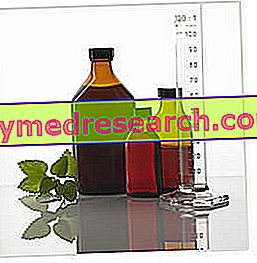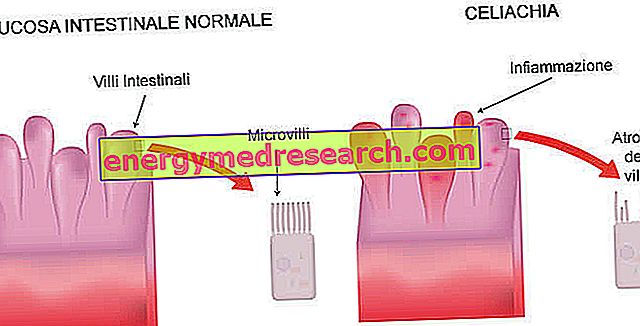Generality
Proctitis is an inflammatory process affecting the rectum, which is typically accompanied by rectal pain, an unpleasant feeling of continuous need to defecate, small rectal hemorrhages and, occasionally, anal mucus or pus leakage.
Proctitis recognizes numerous possible causes of origin, such as traumatic insults, inflammatory bowel diseases and venereal infectious diseases or non-sexual transmission.
Symptoms Proctitis
To learn more: Symptoms Proctitis

Proctitis may also be accompanied by fever, dehydration, vaginitis, vaginal discharge of foul odor, urination disorders and urethritis.
Causes and risk factors
There are numerous possible diseases and conditions that can trigger episodes of acute and chronic proctitis. In general, causes of infectious origin can be distinguished (typical are food, such as salmonella, shigella and campylobacter, and sexually transmitted, such as gonorrhea, chlamydia, genital herpes, syphilis, trichomoniasis), inflammatory (such as ulcerative colitis and the disease of Crohn) and iatrogenic (radiation therapy in the treatment of pelvic tumors, abuse of laxative drugs such as bisacodyl, or antidiarrheal, and prolonged antibiotic therapies, especially with lincomycin and clindamycin).
From what has been said, among the most important risk factors we mention unprotected sexual relations (failure to use barrier methods such as condoms), especially if anal in nature but not only (in females proctitis may be due to infected vaginal discharge which they come into contact with the anal region), sexual promiscuity and the presence of inflammatory bowel diseases.
Complications
The possible complications of a neglected or non-responsive proctitis to medical treatments include anemia (related to bleeding episodes), rectal ulcers (erosions of the intestinal mucosa) and fistulas (real perforations of the enteric mucosa, which depending on the level at which they occur they connect normally separate structures, such as different tracts of intestine, skin and intestine, bladder and intestine or vagina and intestine).
Diagnosis of Proctitis
The diagnosis of proctitis can be set through tests such as the rectal swab and the coproculture associated with antibiogram (allowing to discover the infectious agent and its susceptibility to antibiotics), the flexible sigmoidoscopy (which allows to visualize the internal walls of the rectum and of the sigma, possibly taking bioprice fragments) and colonoscopy.
Treatment and prevention
To be effective, the treatment of proctitis cannot disregard the correct identification of the causes of origin. If, for example, antibiotics are particularly useful in cases of infectious proctitis of bacterial nature (chlamydia, gonorrhea), they are completely useless and even dangerous in case of viral infections (genital herpes), for which antiviral drugs are possibly indicated. In the case of proctitis of inflammatory origin, anti-inflammatory drugs can be prescribed, such as mesalazine (or 5-aminosalicylic acid), salazopirin or corticosteroids, to be taken orally (tablets) or rectal (suppositories or enema). These same medicines, together with amifostine, can also be useful in proctitis with radiation therapy.



